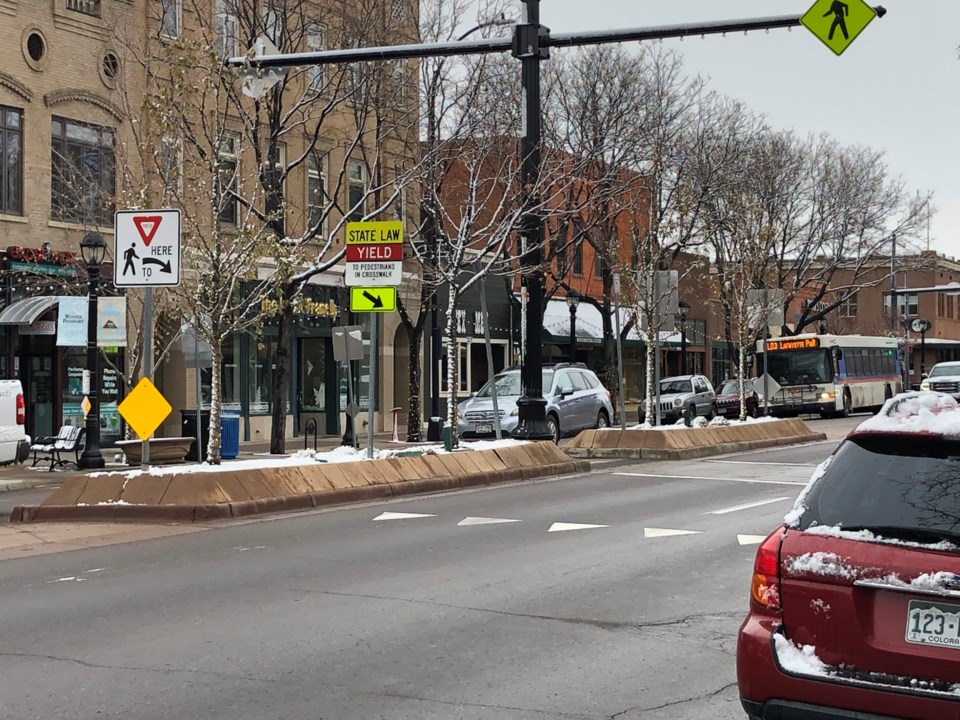A guide to getting Longmont to cut carbon gas emissions over the next several years fell short on specifics, at least two city council members said this week.
A city staff report presented Tuesday on Longmont’s Equitable Carbon-Free Transportation Roadmap leaves out important steps to drastically reduce dependence on traditional modes of transportation that rely on fossil fuels, Councilwoman Marcia Martin said.
“I believe the report should have set out objectives, defined methods to be applied toward attaining the objectives, defined some metrics to measure progress toward success,” Martin said in an email.
The report “is so noncommittal that it is not useful and doesn’t convey the city’s goals,” Martin said. “I still don’t know what the transportation goals are supposed to be.”
Council members voted 6-1, with Martin dissenting, to accept the report and let staff members proceed with the next steps to implement its recommendations. Martin praised the staff members who wrote the report but said they appeared to have rushed to get it before the council.
“Everyone would have benefited if it had been delayed a bit more,” Martin said.
Councilman Tim Waters said the city needs a more detailed talk about transportation trends in the future, which will include buses and other options. The city should “have a conversation on what we expect to see in local transportation … by 2030,” Waters said during the work session. “We need to be educated about what that future is.”
Phil Greenwald, Longmont’s transportation planning manager, told the council the roadmap includes several elements of state and local goals and reports. It will also be updated to include the council concerns.
The roadmap aims to pull together different city equity and carbon-free plans for local transportation to create a coordinated plan, according to the city staff report.
The goals, set out by state and city officials, look to:
- Reduce overall greenhouse gas emissions by 69%
- Cut transportation-related fuel consumption by 33% by 2050
- Increase equitable access to transportation for all segments of the community
- Prioritize connecting bicycle and pedestrian facilities citywide to allow a broad choice of safe ways to travel other than by car
- Educate and provide funding to enhance the overall safety of the transportation system for all users
The strategies the city can use to achieve the goals include employing incentives to reduce car trips, improve infrastructure to encourage people to take mass transit or ride bikes to work and encourage individual and fleet ownership of zero-emission vehicles, the report states.
No timetable was given for when the updated report will again go before the council.



